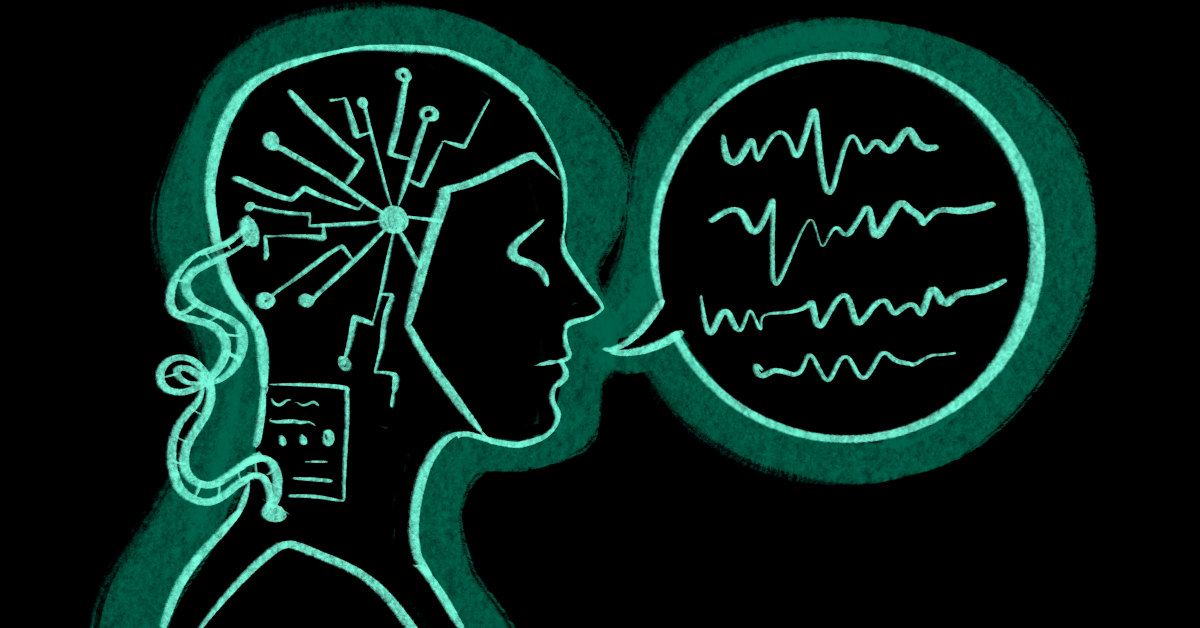The risks and rewards of AI voice acting
When you hear a voice in a cartoon or song, do you ever think, was that really a person?
Thanks to modern technology, it’s possible to make an exact replica of someone’s voice and make it say or even sing whatever you want. At first, this capability seems amazing and opens the door for countless possibilities, however, after a minute of consideration, you start realizing the implications are troubling. Imagine someone making a copy of your voice and directing it to say crazy, even insulting, things that you would never think of.
A recent development in artificial intelligence (AI) is the use of the technology to create entirely new songs in the voice of a famous person. I know, it sounded ridiculous to me at first too. Then one night during my daily YouTube browsing, I encountered two AI covers: one of Ariana Grande singing Best Day Ever from SpongeBob, and the other of Squidward singing Gangnam Style. I was intrigued and entertained by both, though more by the latter. I found Squidward’s take on the song so catchy and the inflections were spot on. With the former, perhaps I felt disturbed listening to a real person’s voice, knowing it was not actually their voice but a cheap copy. Regardless, this led me to stumble into more content of various cartoon and video game characters singing along to songs—and I enjoyed it all.
That was until I came across several posts on X, formerly known as Twitter, that shared the same sentiment: many voice actors are struggling to find work because of AI. I reeled at this initially, finding it unappreciative of technological achievements, but I see where they’re coming from. I couldn’t imagine being able to do different voices or train as a voice actor only for the entire career field to become dominated by machines.
Imagine your voice being used to say things you disagree with—like a company using your voice on a script you declined because you didn’t agree with its message. As it stands, there are no copyright laws on people’s voices, so companies could get away with doing this.
While AI voices sound good, they’re not yet entirely realistic. I’m more impressed by hearing a beautiful sounding voice come from a human than a machine. There have been many voice actors throughout history who have a unique ability to do multiple voices well, such as Dan Castellaneta from The Simpsons. Besides, wouldn’t you rather listen to a human than a machine? Isn’t it more interesting learning about the former’s talent than the latter’s ability to copy it?
Now let’s get this straight: I’m not completely against AI voices. I don’t see problems with AI covers online since they’re not being made to make money but just to have fun and experiment. It’s no different than someone doing an impersonation of someone’s voice. But once upon a time, there were no computers to enhance voices, so having a great-sounding voice was a huge deal. For example, Alan Reed, the original voice of Fred Flintstone, made Fred the iconic character he is. Like Castellaneta, Reed did many voices—and with AI, we could technically use them in a potential reboot of the series as Reed passed away in 1977. Voice actors, however, would likely see this as taking work away from them, and maybe there’s someone out there with the perfect Flintstone voice.
AI voices are an impressive technological advancement that I believe should be taken advantage of. It allows great voices to live on forever and continue to entertain. However, peoples’ voices are their property and stealing them should be no different. Copyright laws need to reflect this, so AI can be used where appropriate and not used without the original speakers’ or their families’ consent.
Staff Writer (Volume 49 & 50) — Yusuf is in his fourth year completing a double major in English and Cinema Studies and a minor in History of Religions. He first joined The Medium in 2022 when he sought to get involved in the on-campus community. He has developed strong writing skills throughout the experience and enjoys learning about new topics he wouldn’t know about otherwise. You can connect with Yusuf on LinkedIn.



Not to mention the potential financial havoc of contacting your bank and pretending to be you by copying your voice….